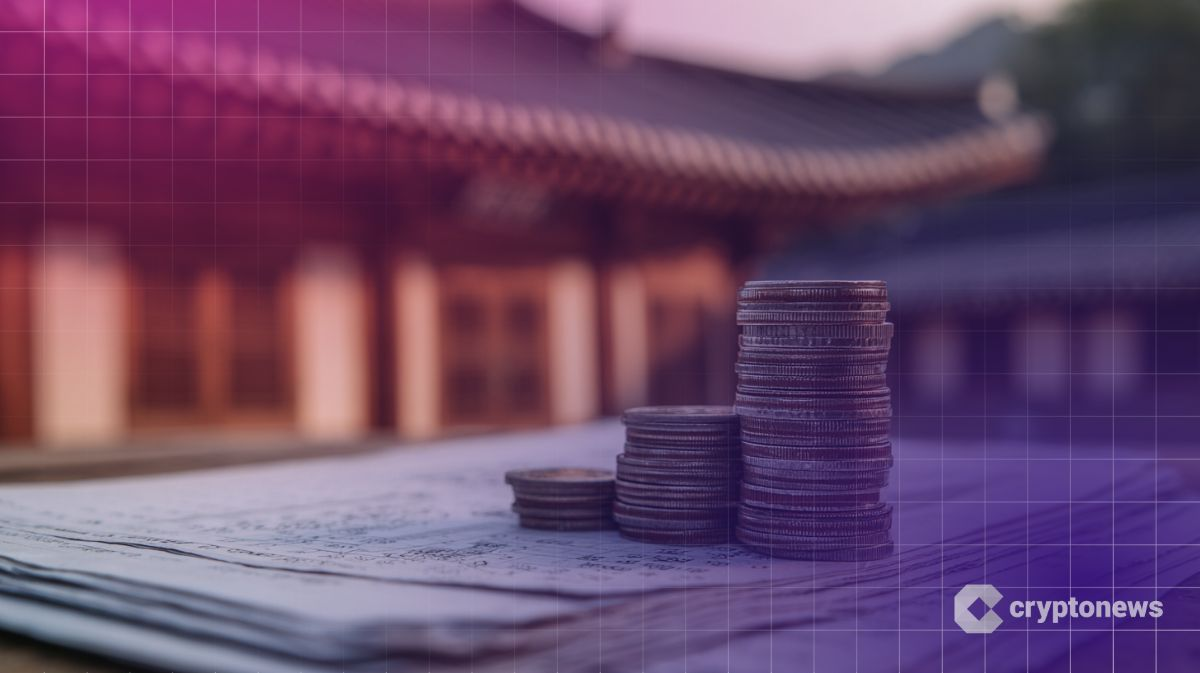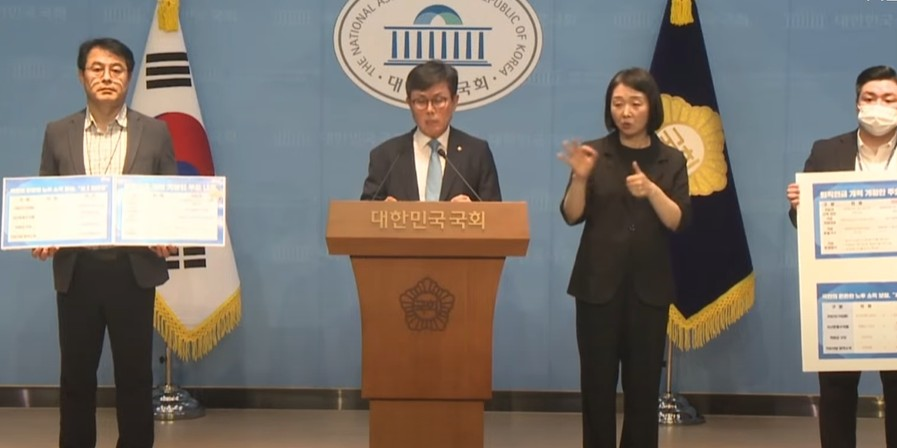The ruling Democratic Party (DP) of South Korea and the main opposition party, the People Power Party (PPP), recently announced their respective stablecoin-related bills aimed at regulating stablecoins pegged to the Korean won. Although both parties reached a consensus on several aspects, the issue of interest payments has become the focal point of their debate.

Stablecoin Bills: Consensus and Common Points
On July 28, Democratic Party lawmaker Ahn Doo-jae proposed the "Act on the Issuance and Distribution of Value-Stable Digital Assets," while People Power Party lawmaker Kim Eun-hye introduced the "Fixed Price Digital Asset Payment Innovation Act." Both bills propose to incorporate stablecoins pegged to the Korean won into the domestic financial institution system, with the Financial Services Commission (FSC) responsible for regulation.

Democratic Party lawmaker Ahn Doo-jae (second from left) speaks at the National Assembly earlier this month. (Image source: National Assembly/Screenshot)
According to the bill's content, the FSC will have the authority to establish rules for the issuance, distribution, and exchange of stablecoins, and to implement emergency orders on operators in cases of market disruption or user rights violations. Additionally, all stablecoin issuers must be regulated financial institutions or joint-stock companies, and foreign companies must establish branches or sales offices in South Korea to apply for licenses. The bill also requires issuers to have a minimum capital of 5 billion won (approximately 3.6 million USD) and to be equipped with a professional IT team and staff related to stablecoins.

Interest Payments: The Core of Controversy
Despite reaching an agreement on the regulatory framework, there are significant differences between the two parties regarding whether to allow interest payments on stablecoins. The Democratic Party advocates for a ban on interest-paying stablecoins to avoid market disruption and interference with monetary policy. Ahn Doo-jae warned that interest payments could lead to instability in the financial market.
In contrast, the People Power Party believes that allowing interest payments could enhance the competitiveness of the Korean won stablecoin, especially in promoting it in international markets. Kim Eun-hye stated that the interest payment mechanism would drive the growth of the Korean won stablecoin overseas, attracting more users and investors.
South Korean media Newsprime quoted an anonymous cryptocurrency industry insider who said, "Taking the US dollar stablecoin as an example, under US law, interest-paying stablecoins may be considered securities. Countries can establish corresponding regulatory provisions based on their own laws."
The Korean Stablecoin Boom and International Competition
Several domestic companies in South Korea, including commercial banks, tech firms, internet giants Kakao and Naver, as well as credit card issuers like Lotte Card, are actively preparing stablecoin issuance plans. This move by Seoul is partly a response to the rapid advancement of the US "GENIUS Act." It is reported that American companies like Amazon and Walmart are also considering launching stablecoins to reduce transaction costs, prompting East Asian regulators to accelerate the formulation of relevant policies to avoid falling behind in the global stablecoin race.
The stablecoin bills from South Korea's two major parties mark an important step toward regulating the digital asset market. Although consensus has been reached on key issues such as regulatory bodies and issuer qualifications, the controversy over interest payments remains unresolved. In the coming weeks, Seoul is expected to further clarify regulatory measures, and the positioning of South Korean companies in the stablecoin sector will also attract significant attention.
免责声明:本文章仅代表作者个人观点,不代表本平台的立场和观点。本文章仅供信息分享,不构成对任何人的任何投资建议。用户与作者之间的任何争议,与本平台无关。如网页中刊载的文章或图片涉及侵权,请提供相关的权利证明和身份证明发送邮件到support@aicoin.com,本平台相关工作人员将会进行核查。




